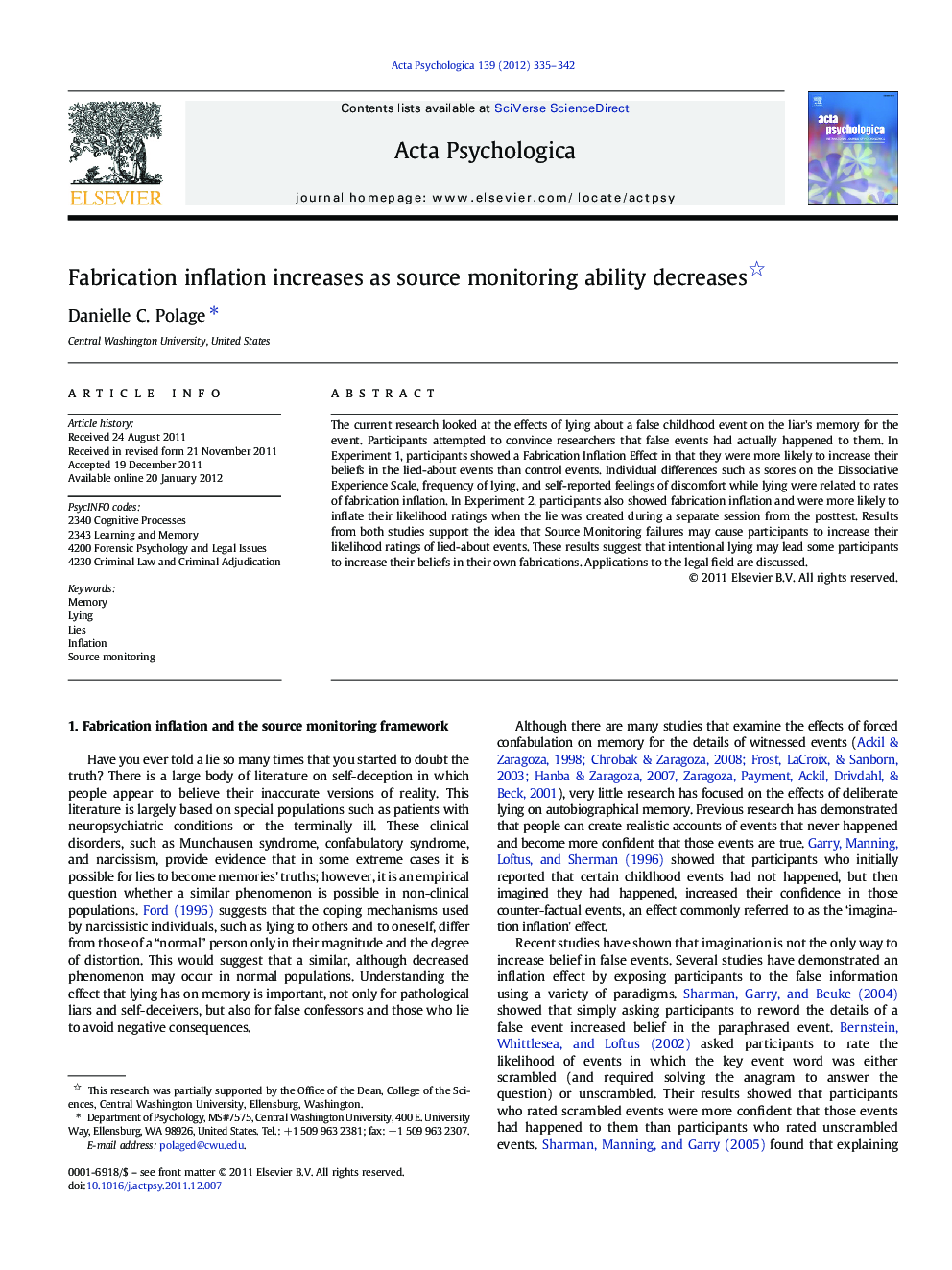| Article ID | Journal | Published Year | Pages | File Type |
|---|---|---|---|---|
| 919999 | Acta Psychologica | 2012 | 8 Pages |
The current research looked at the effects of lying about a false childhood event on the liar's memory for the event. Participants attempted to convince researchers that false events had actually happened to them. In Experiment 1, participants showed a Fabrication Inflation Effect in that they were more likely to increase their beliefs in the lied-about events than control events. Individual differences such as scores on the Dissociative Experience Scale, frequency of lying, and self-reported feelings of discomfort while lying were related to rates of fabrication inflation. In Experiment 2, participants also showed fabrication inflation and were more likely to inflate their likelihood ratings when the lie was created during a separate session from the posttest. Results from both studies support the idea that Source Monitoring failures may cause participants to increase their likelihood ratings of lied-about events. These results suggest that intentional lying may lead some participants to increase their beliefs in their own fabrications. Applications to the legal field are discussed.
► Examines effect of lying about false childhood events on liar's memory for event. ► Participants attempted to convince researchers that false events happened to them. ► Exp 1: Individuals with source monitoring problems showed increased belief in lies. ► Exp 2: Increasing difficulty of source monitoring test increased inflation. ► Source monitoring failures increase belief in previously lied-about events.
